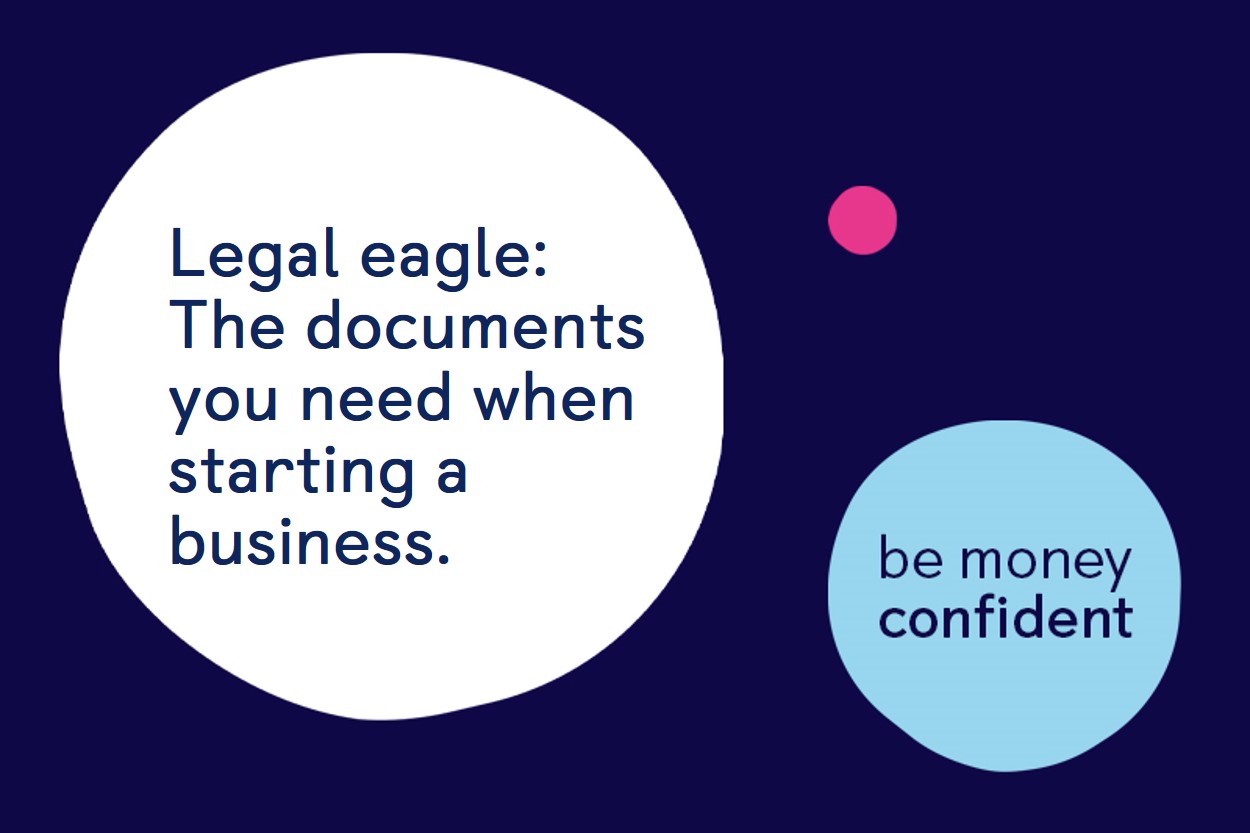Together we can end domestic abuse.
Legal eagle: The documents you need when starting a business

Legal eagle: The documents you need when starting a business
August 2020
Running a small business is about passion. Entrepreneurs see a problem and know they can make a difference. But that doesn’t mean there’s not going to be lots of paperwork.
Before you start bringing your ideas to life, there are some key legal documents you may want to consider, which will save you time later on.
This post sets out some of those documents you may need to get sorted as your set-up begins.
Incorporation documents
Private limited companies are separate legal entities from the shareholders that own them. This removes personal liability, keeping finances separate from your personal bank account.
To set up a company you'll need to fill out incorporation documents. You need to have the following to hand before you start:
Company name and address
Details for a director who will be responsible for running the company
Details of the company’s shares
Your SIC code, which classifies your business
The process starts with the memorandum of association. The shareholders agree to form the company and how the shares are distributed. The government website provides a template for this document.
The articles of association set out the rules for running your company. This includes management and administration, and what responsibilities everyone has. Most companies use the standard template for private companies.
You can create bespoke articles of association to reflect your company’s unique circumstances, such as including classes of shares with different voting rights.
When you have everything ready, you can register the company on the Gov.uk website or by post. It costs £12 if you do it online.
Shareholders’ agreements
A shareholders’ agreement covers the relationship between the shareholders. This can include the management of the company, ownership of the shares and other protections for shareholders. It's commonly used in conjunction with the articles of association.
Shareholders’ agreements often cover what will happen in difficult circumstances. While directors setting up a company are on great terms it's important to consider what might happen in the future including for directors' personal circumstances such as a divorce or disagreements.
Common points to cover include:
Issuing new shares
The appointment or removal of directors
Borrowing money
Changing the purpose of a business
A procedure for resolving disputes
Because this is a bespoke document it's normally created with formal legal support.
Contracts with suppliers and customers
When you first start building a business you want to move as quickly as possible. This can mean small business owners do not put formal paperwork in place, potentially creating risks.
Business advice services help by providing templates for these contracts. Have a look at the industry bodies that represent your sector and other advice online. This helps with basic agreements. It's possible you may have to get professional help to set out bespoke requirements.
Website terms and conditions
Website terms and conditions are an important point of reference for your business. They cover liability for website content, help safeguard intellectual property and define how you use data.
Privacy policies explain how your business collects and uses customers’ personal data. Your website may set cookies on users’ computers, which help with online advertising, for example. You will need to clearly define what you are going to do with the information.
It's difficult to provide generalised advice about what you should include in your website terms and conditions. You need to understand what you're doing with customer data and create terms and conditions to meet these unique circumstances.
That said, the document can be based on a template. Try Googling the industry you're in and think about the unique requirements you have to help create the page for your website.
When you're setting up a company it's important to build it on a solid foundation. That means approaching the formation procedure with care. These documents are standardised, but it's important you understand them and make changes that reflect your specific circumstances.
This article will only point you in the right direction but take time to read the advice on the Gov.uk website and see professional help if it's needed.
